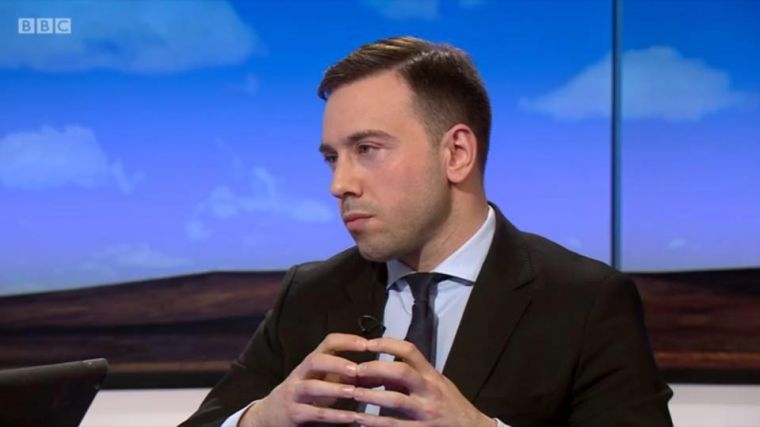WATCH: Former Islamic extremist who went from celebrating 9/11 to fighting radical Islam

A former Islamic extremist has shared his experiences on the inside of a jihadist cell, how he went from celebrating 9/11 to leaving the extremist group behind.
Adam Deen spent eight years as a leading member inside the Islamist extremist group Al-Muhajiroun. He described his experiences in an interview with UNILAD.
Deen was part of the group during al Qaeda's 9/11 attack on the World Trade Centre. He described his feelings at the time: 'When the second tower was hit and it was confirmed that it was a terrorist attack. I felt a sense of elation, joy, happiness and it was payback.
'And we drove out on the streets of London honking the horn, and saying have you heard the news? America has been hit. It was almost like the chickens had come home to roost.'
Deen said his time with the Islamist group, which has been branded as 'ISIS-UK', began with a 'curiosity in the Islamic faith', with his questions not answered by his Islamic community. He was compelled by the preaching of Al-Muhajiroun when they came to his University.
Deen said: 'I felt they had a true understanding of the faith and that was my motive, what does it look like to be a good Muslim and live a good Islamic life.'
Al-Muhajiroun, who are now banned in the UK, were involved with about 70 terrorist plots. Deen described a typical insider's understanding of terrorism.
'The rationale behind such an attack would be to attack the British government, to punish them for what was perceived to be a war on Islam and a war on Muslims.
'For their invasion of Iraq, their aggressive foreign policy against Muslims and their cooperation with the United States of America. We wanted to make an impact, for them to realise they shouldn't meddle with Muslim affairs and that there is a consequence in targeting Muslims.'
However, in 2003 Deen was challenged and convicted about the celebration of mass-slaughter. He said: 'this woman approached me and she looked very distressed and she had tears in her eyes. And I looked at her and then she said: "My brother was in one of those towers and he died that day."
'Suddenly at that point everything froze for me. It was almost like someone stopped the music playing, the record suddenly jerks, everything just stopped. And I was actually faced with the human consequences of extremism and terrorism.'
The video interview has already sparked controversy online, with many in the UNILAD comments section expressing their anger or disbelief at Deen's story, and insisting that he be punished.
Either it's fake or I should be killed Shocking Level of hate that clouds reason: the comments for my @UNILAD video https://t.co/5l0lR2eF2z https://t.co/8svALn9OpK
— Adam Deen (@adamdeen) March 27, 2017
Deen left the group in 2003. He now works to combat the extremist attitudes he once espoused, as the managing director of the Quilliam Foundation, a counter-extremism organisation. He also founded the Deen Institute, a Muslim debating forum encouraging critical engagement about Islam with British Muslims.
Deen said: 'This isn't a challenge for the next two, three or four years but for the next 20 years. Ultimately, we need to stand together, to stop young people becoming radicalised and attracted to extremism.'











